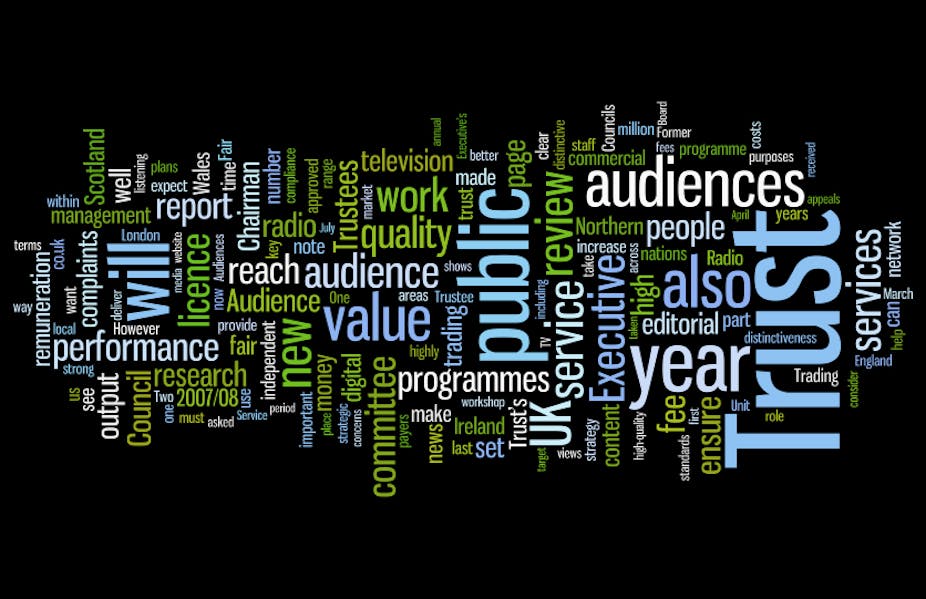They key phrase spoken in BBC Radio 4’s Today programme on the findings of the latest IPCC climate change report was “it’s about people now”.
It’s a statement likely to carry great weight with a body of listeners who have tended to conceive of climate change as a remote, distant issue, the effects of which they had never really imagined having to face. The programme’s discussion laid out the report’s findings of threats to human health, homes, food and security, and those listening at home grabbing a slice of toast on their way out of the door would be in no doubt that “no one will be untouched”.
But those still listening later might well be. The next interviewee was Professor of Economics, Richard Tol, an IPCC contributor who announced he wanted his name removed from this report, stating he was unhappy with the final draft’s tendency to be “alarmist”. In terms of appeasing the listening public now wide awake at the prospect that climate change can’t just be ignored, he was highly effective.
Meanwhile on the BBC’s 5Live there was a similarly powerful rebuttal to the main, pull-no-punches headlines about the conclusions of the IPCC – a synthesis of the work of hundreds of scientists from more than 70 countries – when climate scientist Professor Judith Curry opened her interview with the words “the climate always changes”. She went on to highlight the great challenges of differentiating between “what’s natural and what’s anthropogenic” [man-made].
Scouring the media, as research has shown people now do routinely, audiences were subject to a reinforced message of reassurance regarding the IPCC’s headlines. Channel 4 News that night asked “Was the climate change report alarmist?”, and Richard Tol again played down warnings about the economic impact of climate change, including those of the comprehensive Stern Review in the Financial Times and also here. For one dissenting voice among the hundreds contributing to the IPCC, Tol receives rather disproportionate air time and column inches.
The arguments about the inclusion of sceptical voices, and the links to lobbying groups, are strongly put elsewhere. But in terms of audience response, it is significant that this same week Parliamentary Science and Technology committee criticised the BBC for “failing to clearly and effectively communicate climate science to the public”, and giving undue weight to marginal opinion. Actually the committee was equally critical of the government, as well as other news outlets. Despite two invites, neither the Daily Mail nor the Daily Telegraph – the newspapers displaying most scepticism - bothered to show up.
While the BBC is not the only, nor indeed the worst, offender in terms of communicating climate change, there is a strong argument that it is the most important. As evidence to the committee from Glasgow University Media Group and others emphasised, it carries the most trust with audiences and therefore a weight of responsibility that other news outlets don’t. This is particularly so in an over-saturated media environment in which credibility is increasingly difficult to attribute.
In response to the criticisms, a BBC spokesman re-affirmed that “as part of our commitment to impartiality it is important that dissenting voices are also heard”, and that the BBC does not believe “in erasing wider viewpoints”. Achieving impartiality is, of course, in the BBC’s DNA, but in this case it appears to be prioritised over informing audiences. As a strategy it seems to function as one of almost deliberately confusing them.
Listening to the 5Live report with Judith Curry, the reporter himself sounds confused. It’s very difficult to justify claims that this is in the audience’s interests as they are torn from unequivocal reports that climate change is going to have “severe, pervasive and irreversible” effects, to being reassured that it probably won’t be all that bad. Especially so when there is no clarification of which side carries most weight.
That audiences are confused about climate change has been demonstrated by research. More specifically, that the media has sown the seeds of doubt about the pressing need to take steps to slow or prevent it. And yet there is evidence that the public would in fact accept quite radical policy change on the issue if the communications were improved. But the most likely outcome of some of the coverage this week is that heads will continue to spin.

